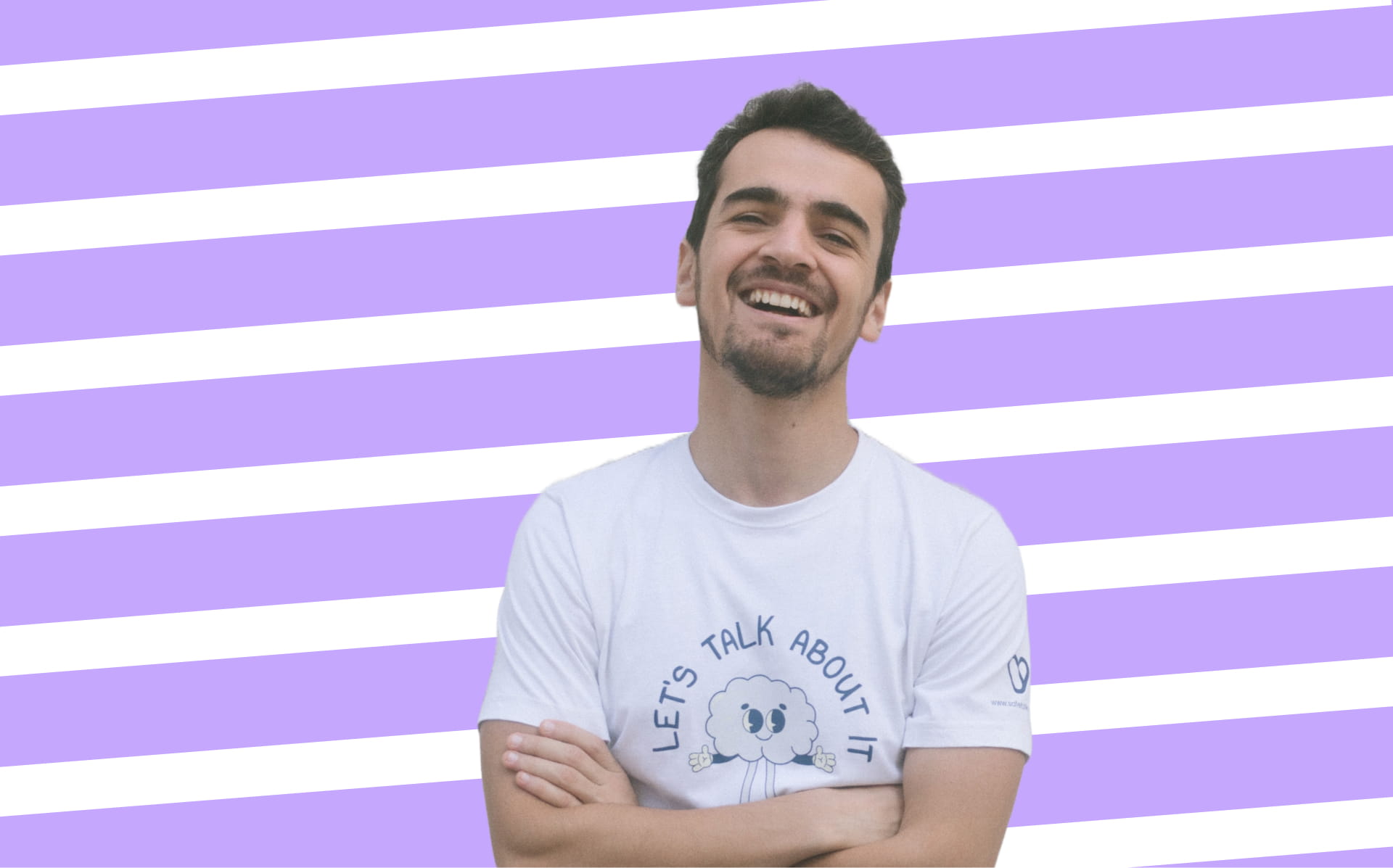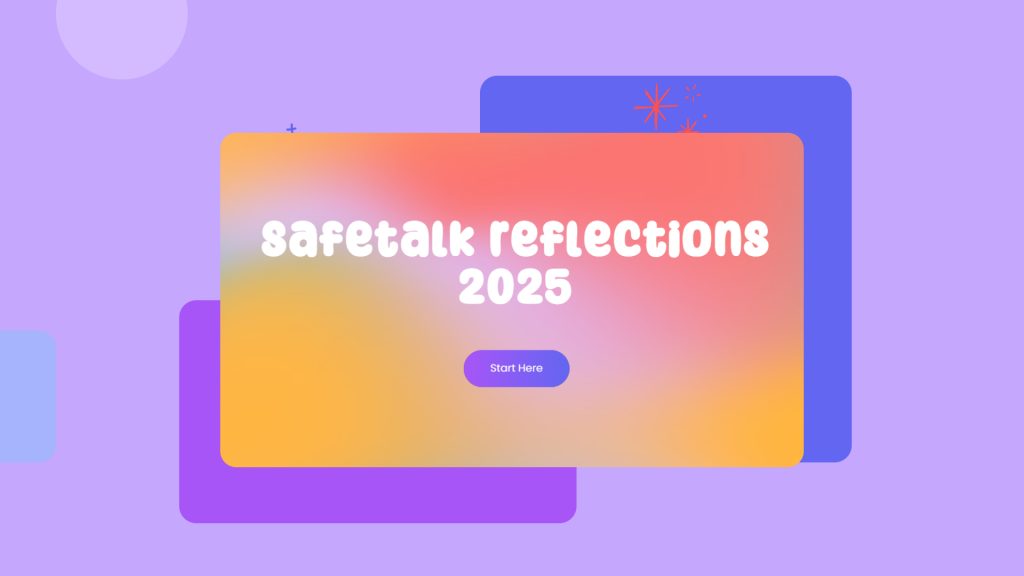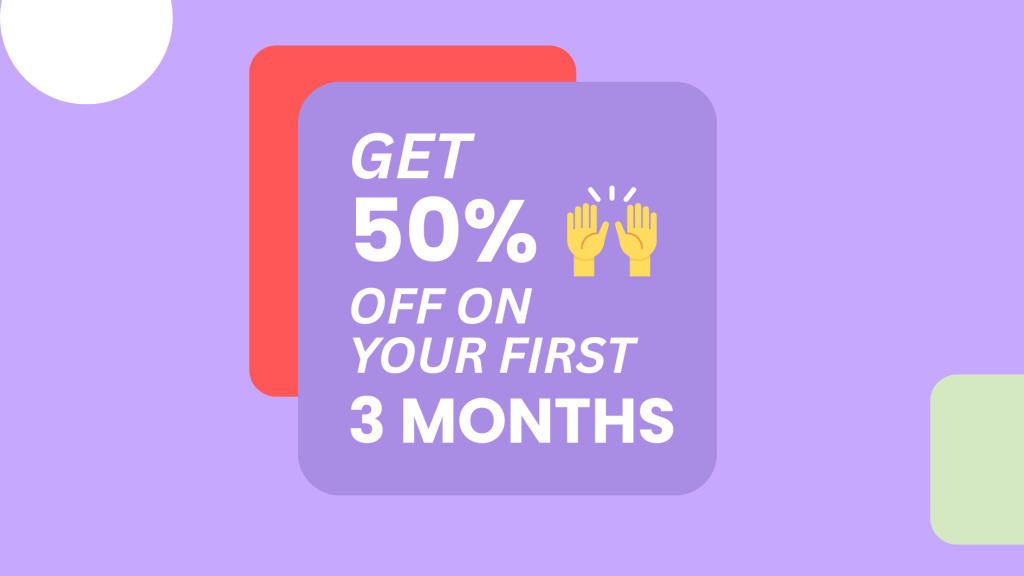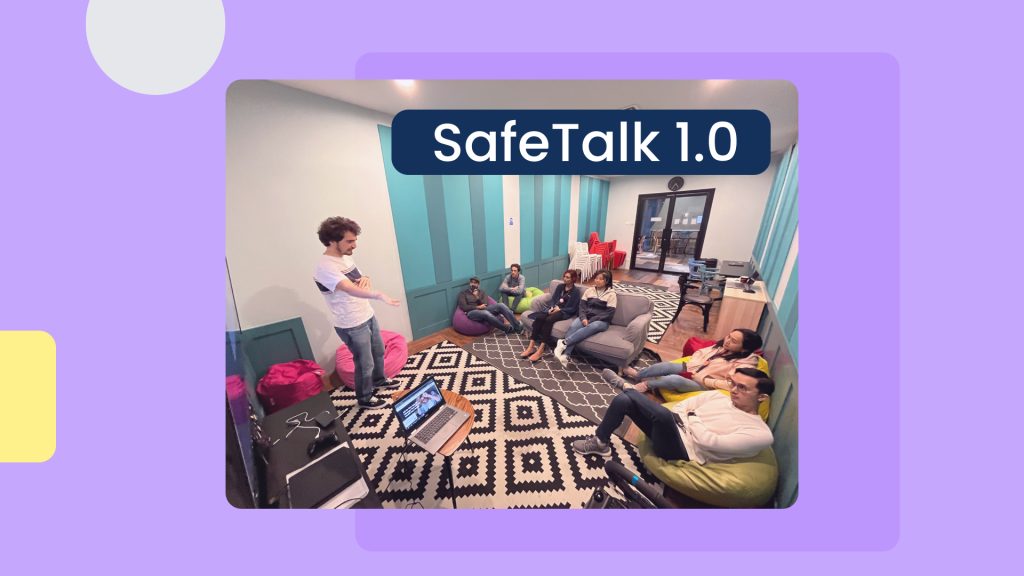This content is from an Interview with SafeTalk co-founder Shavkat Aslamshoev, who takes us through the journey of how the platform came to life and the motivation behind its creation.
Can you tell me about the moment when you and your co-founder, Shohin, realized that there was a need for a tech solution like SafeTalk in the mental health care sector?
- Shohin and I are both from tech background & we have worked on 100s of projects together over the years: some as a hobby just for the fun of it & many for the clients of our web design agency. Somewhere in late `21 and early `22, a friend of ours, suggested to look into mental health, where awareness was growing rapidly at the time, especially right after the lockdowns due to Covid. Initially we discussed a few basic ideas, treating this as another potential hobby project & not giving it much thought outside of that.
But the more time we spent thinking & planning, it started to look a lot more “serious”. Recollecting from my own experience in therapy from university, speaking to therapists & friends who attended therapy, we realized this was something much bigger. It was a marriage of the everyone’s(therapists & clients) urgent need for modern & improved solution in therapy; and our passion of building something that we were deeply passionate about. And… SafeTalk was born. Now everyday feels like a long learning journey: we learn more about mental health, both from therapist & clients perspective, new challenges arise, that we know we can solve…
Come to think of it now, it wasn’t one of those I woke up one day and found my passion moments and I’d be lying if I said I was head-on in this idea from day one. But in a way, I’m also glad, because I think, if my passion for this skyrocketed one day, it probably would’ve crashed in a day as well. Instead, it was a slow, gradual understanding & learning mental health step by step. Everyday, the more I learn about it, the more & more excited I get about what we are doing. I even went on to take related courses in Mental Health First Aid & HIPAA Data Privacy.
…and the best part, almost every therapist we spoke to, related to our cause and agreed that a solution like SafeTalk could really help their practice: it is a tool to help therapists to manage their work & provide a better quality care for their clients.
SafeTalk’s commitment to data privacy is impressive. Could you share a story that highlights how this dedication to patient data privacy laws has positively impacted a mental health practitioner or their client?
- Back in my uni days for my therapy sessions, I remember writing my journals in a piece of paper and bringing them to the next session. This was 10 years ago, when paper and pen were still used. But today everything is online, if I go to therapy, I will probably need to send those journals via email or some other online method. And these journals were thoughts that I wouldn’t even share with my closest friends or family.
This story was something that I always look back at, when thinking about the role of data privacy in SafeTalk. It’s what drove us to implement the tightest data privacy standards in SafeTalk. We implemented HIPAA, to ensure we provide a true safe digital space for everyone
And I’d say, that has paid off. Today, SafeTalk’s journaling tool, is one of most loved features in SafeTalk, due to our strict data privacy implementations. Our most active users have more than 500 journals written on SafeTalk & it makes me happy to know we are creating that safe online space today
It’s wonderful to see that SafeTalk not only offers a Practice Management platform but also aims to create a safe space for practitioners and clients. Could you describe a particularly touching experience where you felt this safe space was truly making a difference?
- A powerful testament to SafeTalk’s role in creating a safe space is the way our internal chatting tool has been embraced. In just 2+ years of operation, more than 75,000 messages have been exchanged between therapists and clients through the platform. This level of engagement shows that both practitioners and clients not only trust SafeTalk for secure, confidential communication but also feel comfortable choosing it as their preferred space to share, connect, and support one another.
Tell us more about the struggle that you were facing (mental health-wise) and how did you over come it? What can others learn from your experience?
- The first time ever I personally experienced a mental health struggle was when I was in uni, in my early 20s. I kept having sleep paralysis(due to mental health issues apparently which I found out later) for a few months. Over time these incidents became so intense that it started affecting me physically, where I would suffocate in my sleep, keep waking up constantly and couldn’t get proper rest at niight.
It was a really strange time for me, because I had no idea what was happening or even if there is anything I could do about it. I knew we had a university counsellor, who I thought would definitely know where to guide me to find help.
Turned out, he was the one who would help me. After a series of interventions, and looking into the cause of it, he helped to understand that it was caused by my own mind. The rest is private and confidential 🙂
But I must say I kind of feel proud now, that in my early 20s, given the kind of society that I came where where mental health is such a taboo topic, I gathered the courage to seek help. Over a period of time, the incidents stopped happening to the point that I can’t barely remember having one since. That’s one the the reasons that I feel so passionate about mental health personally. Therapy helped me, and it can help you as well
Achieving the certification of a Standard Mental Health First Aider is a significant accomplishment. Can you tell me about a time when this training made a difference in someone’s life or in a challenging situation?
- As company that’s involved in mental health & our efforts in raising awareness, many times we have had people reach out to us, especially those seeking for help immediately, asking to speak with someone.
During the Mental Health First Aid course, we were taught how to act in such situation, especially if it is critical. It’s a balance of asking the right questions & comforting the person, before advising them to seek help from professional with proper experience.
Even though during the course, we did a controlled roleplay of a similar scenario, it’s a whole different thing, when you are in the middle of your work, receive a message and need to immediately step in. The first time, it was almost like a shock, and I even struggled to ask the right question at the start. But after a few similar experiences, you learn to be ready at a moments notice & calmly guide the person through the help they need. I wouldn’t have been able to do this with MHFA course
The #LetsTalkAboutIt initiative sounds incredibly impactful. Could you share a specific story or moment when you saw this initiative breaking down the stigma around discussing mental health topics that are often considered difficult?
- Through #LetsTalkAboutIt initiative, we open up conversations that we think are not as widely spoken about. One particular topic that went viral on our social media channels, was related to men’s mental health. The topic revolved around the pitfalls of communicating the wrong things to men in relationships, particularly when it comes to fostering understanding and harmony. This particular conversation spawned few thousands of people to join the conversation and share their experiences, from all over the world. Our social media notifications were screaming for few weeks, and we could never imagine how far this conversation would have reached.
Can you provide an example of how the tools tailored for mental health practitioners within SafeTalk’s platform have improved the efficiency or effectiveness of their work?
- A case with one of our early adopters, a therapy center in Malaysia, illustrates the impact of SafeTalk’s tailored tools. Before adopting the platform, their team faced the common challenges of semi-manual appointments, intakes and client communication. It’s time-consuming day to day work, that reduces capacity for client care. With SafeTalk, the operations were streamlined and client engagement enhanced. Since implementing the platform, within 2 years, they’ve grown their practice size 2.5x, powered by greater efficiency and improved client outcomes. Read more about their journey in our case study on Cara Cara.
Mental health advocacy requires a lot of dedication and resilience. What’s a piece of advice you’d give to someone who is passionate about mental health awareness but might be unsure of where to start?
- To budding mental health advocates, a crucial piece of advice is this: Prioritize accuracy and evidence in the information you share. In today’s digital age, where various information proliferates, it’s important to thoroughly research your topic before engaging. Incorrect information can do more harm than good. Ensuring advocacy is grounded in truth and backed by proof will make your efforts effective and trustworthy, and more importantly, genuine interest and empathy will help you connect with others on a human level. Whether it’s starting a blog, volunteering, organizing local workshops, or leveraging social media platforms, let accuracy & authenticity be your main driver.
Looking ahead, what are your hopes and aspirations for the impact SafeTalk will have on the field of mental health care and on the broader conversation around mental health?
- We live by our motto “Digitizing Mental Health the Right Way” at SafeTalk. In the era of technology, AI and all, we want focus on preserving genuine connections & using technology to enhance those connections instead. With every innovation we introduce, we keep in mind the emotional nuances, vulnerabilities, and hopes that define this journey.





